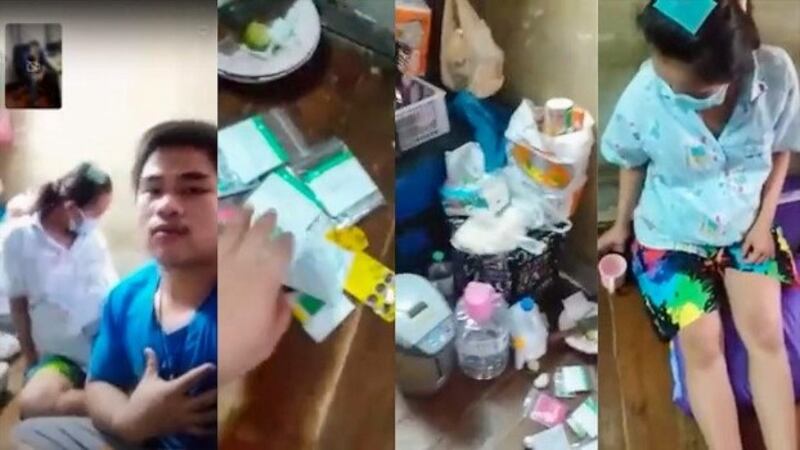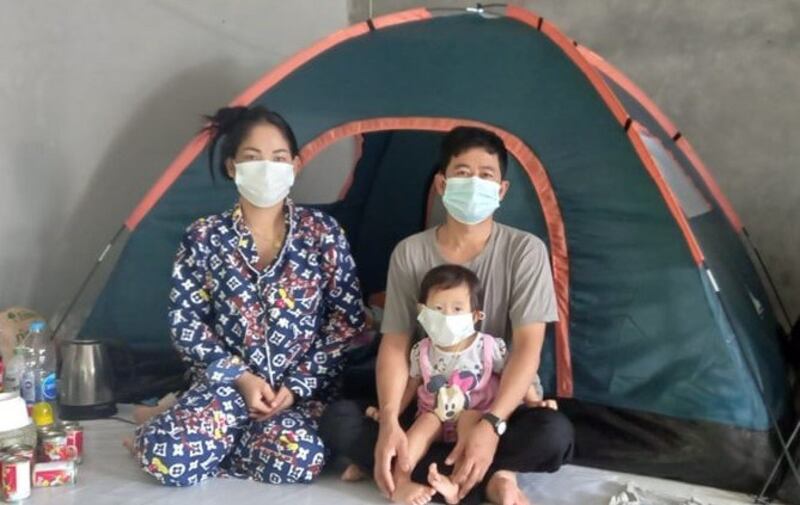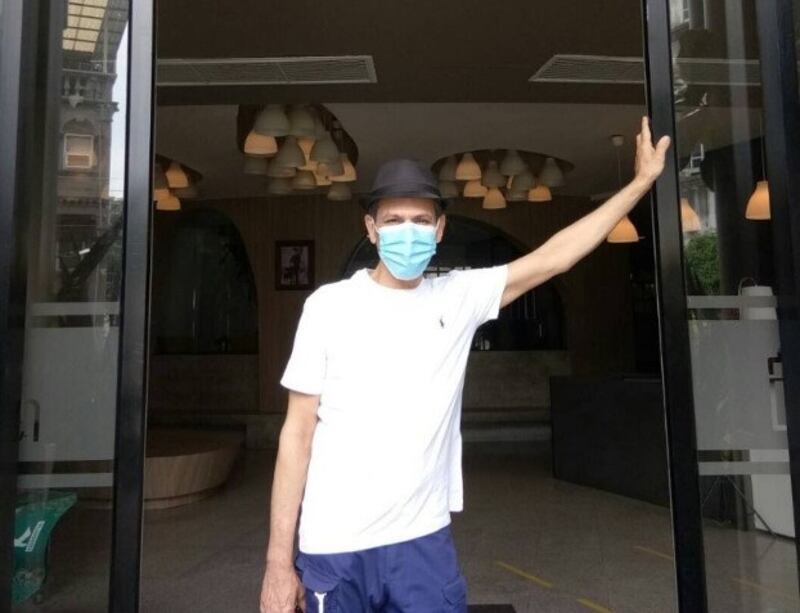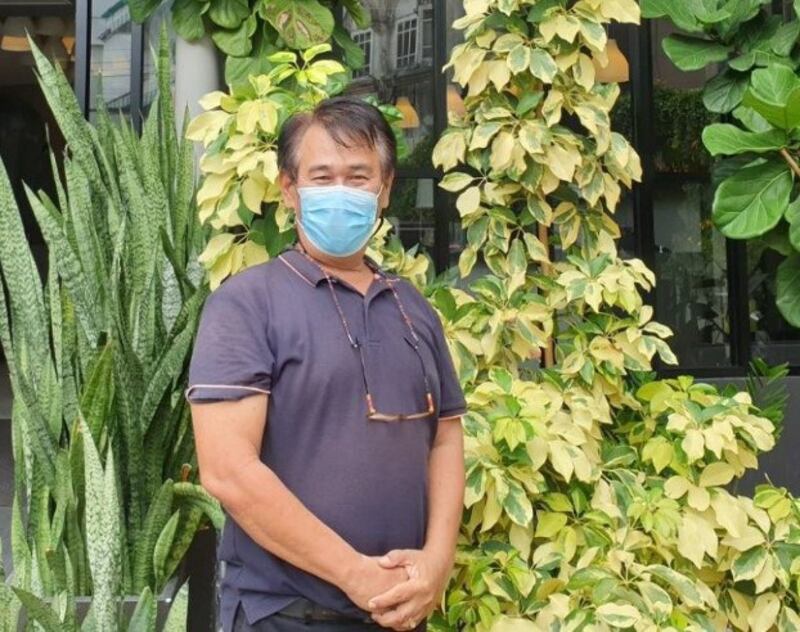The coronavirus pandemic and related movement restrictions are impacting foreign tourists in Thailand and migrant-workers in very different ways.
In response to the latest surge in infections, the Thai government in recent weeks announced new policies, including ones that affect foreigners who visit or work in the country as both are vital to the nation’s economy.
In late June, authorities said they were shutting down camps for construction workers in and around Bangkok. This forced tens of thousands of mostly foreign migrant-workers to isolate indoors for at least a month.
And in a bid to jumpstart an economy ravaged by the pandemic, particularly the lucrative tourism sector, the government announced it was re-opening Phuket Island exclusively to fully vaccinated tourists as a “sandbox” destination. Since then, the government has announced the opening of Koh Samui, another island popular with tourists, as a second sandbox.
Here are vignettes that capture how some foreigners and locals are faring amid the new wave in the outbreak and resulting COVID-19 protocols:

Lin, migrant worker from Laos
A Lao woman who identified herself only by her nickname, Lin, works at a Bangkok market. She is eight months’ pregnant and tested positive for COVID-19 in early July.
“The baby is not moving regularly. For the last several days, it’s kicking my stomach only about nine times a day – it normally kicks at least 15 times,” she told Radio Free Asia’s Lao Service in an interview earlier this month. BenarNews is affiliated with RFA.
Lin worried that her husband would test positive, too, because he was showing symptoms.
She had to wait for five days before being admitted to a hospital in the Thai capital.
Lin’s coronavirus diagnosis affected her time on the hospital’s waiting list, a staffer at the Erawan Medical Center said.
“In this specific case, she’s pregnant so she cannot go to a makeshift hospital and she can’t go to hospitals that treat only COVID-19 patients,” the staffer said at the time. “She’ll need to go to a hospital where she can be properly taken care of because if something happens to her pregnancy, the treatment will be slowed further.”
On July 14, Lin was discharged from a hospital after overcoming the coronavirus, but her husband was still in the hospital.
Once her husband is discharged, she intends to return to Laos to give birth to her baby, because they lack money to pay for a delivery at a hospital in Thailand.

Mean La, Cambodian activist
Mean La, an opposition activist from neighboring Cambodia, together with her husband and year-old daughter contracted COVID-19 on July 1 while hiding out near Bangkok after fleeing their country.
They lacked enough to eat as well as access to health services, she told RFA’s Khmer Service.
Her family has received support from Cambodian migrant workers. Recent meals included dried food, canned fish, and chicken eggs with fish sauce supplied by the migrants.
Mean La said she was suffering from health issues tied to the coronavirus, but was most concerned for her daughter.
“My daughter is too small, she did not know anything. When I was in prison she was in prison with me, and when I was running from Cambodia she was fleeing with me, too,” she said.
Mean La said her family fled to Thailand in September 2020 to escape arrest over Facebook comments supporting Sam Rainsy, the interim leader of the banned Cambodia National Rescue Party.
“I do not dare to go out for fear of police making an arrest,” she said.
The family applied 10 months ago for political protection through the Thai office of the U.N.’s refugee agency, UNHCR, but had not yet been granted refugee status.

Abdulla Hussain, tourist from Qatar
“I was driving in a car … I cried. Is this Thailand? Is this Phuket? Before this, there were millions and millions of tourists … now empty!” said Abdulla Hussain, a tourist in Phuket.
The Qatari businessman, 59, was among foreign travelers to arrive on the island – famous for its paradisiacal beaches and five-star resorts – days after the Thai government opened up this magnet for tourists as the first COVID-19 sandbox for fully vaccinated visitors from abroad.
He landed here on July 10 and booked a room at a local hotel for two weeks, as required by Thai authorities. Under the sandbox scheme, tourists must stay on Phuket for a minimum of 14 days and in the same hotel, but they don’t have to self-quarantine and can roam the entire island freely.
Hussain said he came here because he fell in love with Phuket during previous visits. Before Thailand became the first country outside China to be hit with the coronavirus pandemic in 2020, the Qatari used to visit the Southeast Asian country at least three times a year.
“I like the weather. I like it while I’m walking, I’m getting healthier,” he told BenarNews. “Just to see the greenery, to see the mountains, to see Thai people who show respect by saying ‘Sawasdee Krub’ (Thai for Hello!). They talk nicely.”

Ruchupon Noppakhun, hotel manager in Phuket
Ruchupon, 52, who manages the hotel where Abdulla Hussain was staying, said he had suffered economic hardship earlier on during the pandemic when the island was shut down to tourists. Back then, there was no easy way to move around or meet with friends and relatives, he said.
The I Pavilion Hotel, where he works, has 105 rooms. Soon after it reopened in July, 30 of the rooms were booked – enough for his boss to cover the overhead costs, Ruchupon said.
At first, he said, he was skeptical that the Phuket sandbox scheme would come to fruition because he anticipated foreign and local tourists would be afraid of travelling amid a global pandemic.
But, so far, the business was doing quite well after re-opening its doors, he told BenarNews on July 15.
He recalled bleaker times when all hotels on the island were shut down amid the pandemic.
“I could say all of Phuket’s revenues are from tourism. When tourists were gone, all hotels were shuttered,” he said.
BenarNews and the Laotian and Khmer services of Radio Free Asia (RFA) co-produced this report. Puttinee Nimpitakpong in Phuket, Thailand, contributed to it.
